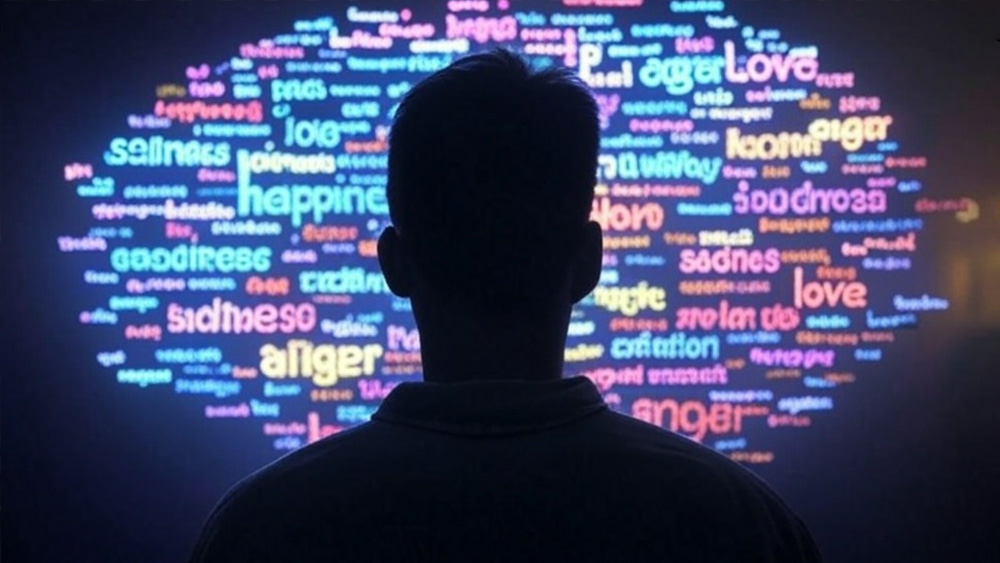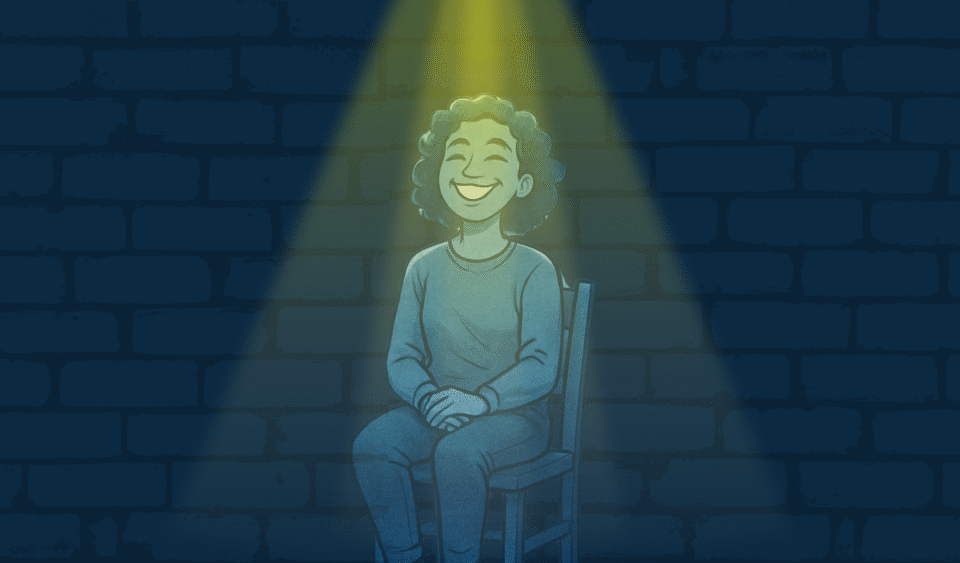There’s a fundamental glitch in being human. We lack the words to explain what’s actually happening inside us. Think about it – you’re given maybe twenty emotional labels to describe the infinite complexity of your inner world.
Take “love.” We use the same word for how you feel about your morning coffee, your dog, your child, your partner of twenty years, and that person you met last week who cracked your world open. Each one is an entirely different universe of feeling, yet we’re stuck with this single, worn-out word that doesn’t begin to capture the depth of any of them.
Or “anxiety” – that label we slap on everything from mild unease about a meeting to the crushing weight that pins you to your bed at 2:49 AM, heart racing, mind spiraling into oblivion. Same word, worlds apart in experience.
Picture yourself in that meeting. Something’s off – tension in your chest, legs bouncing under the table. Your colleague’s talking but you’re drowning in an emotion you can’t name. Not quite anger, not exactly frustration. But by the time you leave, you’ve built an entire story about your worth, your job, your life – all because you couldn’t identify what was actually happening inside you.
It’s like trying to explain quantum physics using only emojis. The result? A massive disconnect between your lived experience and your ability to communicate it. You end up saying “I’m fine” or “I’m just tired” when what you’re feeling is something far more nuanced and real.
This isn’t just about poor communication. It’s about how this language poverty actively warps your reality. When you can’t name something precisely, you start doubting your own experience. You question whether you’re overreacting, being dramatic, or just broken somehow.
But here’s the truth. You’re not broken. You’re not overreacting. You’re just trapped in the gap between human experience and human vocabulary.
Understanding this won’t fix it. But it might explain why you feel so goddamn misunderstood all the time. Even by yourself.
Yes, there are tools, techniques, and pathways through this mental shitshow. But none of that matters until you’re ready to acknowledge the disconnect. Until you’re willing to sit with the discomfort of realising that maybe – just maybe – you’ve been misinterpreting your own internal signals all along.
The work starts there, in that uncomfortable space between what you think you know about yourself and what you’re actually feeling.






